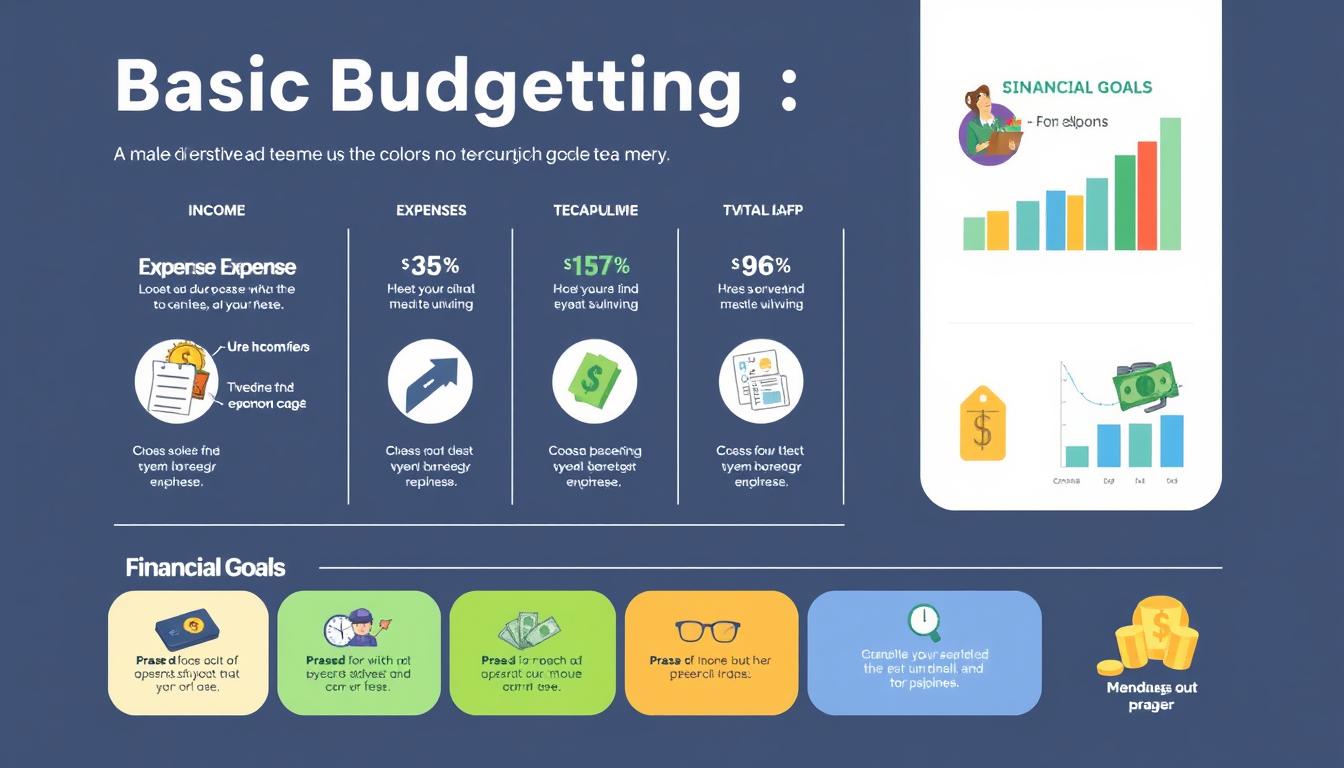Mastering Budgeting Basics: A Helpful Vocabulary Chart

Ever thought a simple list of budgeting terms could change your financial future? Knowing the words that shape your financial choices is key to mastering your money. This basic budgeting vocabulary chart is a must-have. It helps you talk about money clearly and sets the stage for smart financial planning.
By learning these terms, you boost your financial smarts. You’ll feel more confident when dealing with budgeting challenges.
Key Takeaways
- Understanding budgeting vocabulary is vital for mastering financial planning.
- A basic budgeting vocabulary chart simplifies complex financial concepts.
- Effective communication about finances starts with the right terminology.
- Familiarity with budgeting terms strengthens your financial literacy.
- A budgeting terms list is an essential reference for any financial planning efforts.
- Improved vocabulary leads to better money management skills.
Understanding Budgeting: The Foundation of Financial Health
Budgeting is key to financial stability. It starts with knowing your income and expenses. This knowledge helps you manage your finances better.
Budgeting is more than just tracking money. It shows you where your money goes. A basic budgeting vocabulary chart helps you learn important terms.
Using a budgeting terminology guide improves your financial understanding. Knowing about income, spending, and saving changes how you handle money. These money management definitions help you set clear financial goals.
Knowing why you budget changes how you make choices. It helps you spend wisely and stay financially healthy. With a good budget, you can make smart money decisions and gain financial freedom.
Essential Budgeting Terms You Should Know
Knowing key budgeting terms helps you talk about money better. It’s important for managing your finances well. Here’s a comprehensive budgeting terms list with definitions and examples.
| Term | Definition | Example |
|---|---|---|
| Budget | A plan that outlines expected income and expenses for a specific period. | You create a monthly budget to monitor your spending and savings. |
| Surplus | The amount by which income exceeds expenses. | After accounting for all monthly expenses, you have a surplus of $300. |
| Deficit | The amount by which expenses exceed income. | If your expenses are $2,000 and you earn $1,800, you have a deficit of $200. |
| Cash Flow | The total amount of money being transferred into and out of your accounts. | Your cash flow statement shows you received $3,000 and spent $2,500 last month. |
Learning these basic terms helps you make smart money choices. As you learn more, you’ll feel more confident in talking about money. This knowledge is the first step to understanding more about personal finance vocabulary.
The Importance of a Basic Budgeting Vocabulary Chart
A basic budgeting vocabulary chart is key for those new to managing money. It’s like a quick reference guide that breaks down tough financial terms into simple ones. Using a budgeting terminology guide helps you understand financial basics better.
Seeing these terms in a budgeting vocabulary infographic makes them stick in your mind. Visuals help you remember and get what’s going on. You can quickly find terms, making budgeting talks easier.
Knowing financial terms lets you talk money matters clearly with experts or family. It boosts your confidence when dealing with money issues.
Also, knowing key terms is crucial for planning your finances well. It helps you make budgets that help you reach your goals. Understanding financial language improves your decision-making.
| Term | Definition | Example |
|---|---|---|
| Budget | A financial plan that estimates income and expenses. | Planning a monthly budget based on expected salary. |
| Income | Money received, typically on a regular basis, for work or services. | Salary from your job. |
| Expenses | Funds spent or costs incurred in the course of business. | Monthly rent payments. |
| Savings | Money that is not spent and set aside for future use. | Putting money into a savings account. |
| Debt | Money owed to others. | Credit card balances. |
Building Your Budget: Key Components and Terminology
Creating a budget means knowing the key parts that help manage your money. Start by looking at these important elements:
- Income: This is the base of your budget. It includes all money you earn, like salaries, bonuses, and extra jobs.
- Fixed Expenses: These costs stay the same every month. Examples are rent or mortgage, insurance, and some memberships.
- Variable Expenses: These costs can change, like food, fun activities, and bills.
- Discretionary Spending: This is for things you don’t need to buy, like eating out or traveling. You can change how much you spend here.
- Savings: Saving money is important. It’s for future needs or emergencies.
Knowing these parts helps you understand budgeting better. Categorize your spending to manage your money well. Setting financial goals helps you make choices that fit your plans.
Using the right budgeting terms keeps you on track. Learn about money management to make your budgeting easier and improve your financial health.
| Component | Definition |
|---|---|
| Income | All sources of earnings received regularly. |
| Fixed Expenses | Consistent monthly costs that do not change. |
| Variable Expenses | Costs that vary month to month based on usage or consumption. |
| Discretionary Spending | Optional expenses that can be adjusted based on financial goals. |
| Savings | Funds set aside for future needs or to build an emergency fund. |
Money Management Definitions Every Beginner Must Understand
Learning about money management is key for anyone starting their budgeting journey. You’ll find many terms that are important for planning and tracking your finances.
Defining Income and Expenses
Income is the money you earn, like your salary, bonuses, and other income. Knowing your income helps you see how much you can spend and save. Expenses are the costs that lower your income. It’s important to know the difference between fixed and variable costs.
Understanding Fixed vs. Variable Expenses
Fixed expenses don’t change each month. Examples are rent, insurance, and subscriptions. Variable expenses change based on how much you use or buy. Things like groceries and entertainment can vary.
| Type of Expense | Definition | Examples |
|---|---|---|
| Fixed Expenses | Costs that remain the same each month | Rent, mortgage, insurance premiums |
| Variable Expenses | Costs that can change month to month | Groceries, entertainment, utilities |




